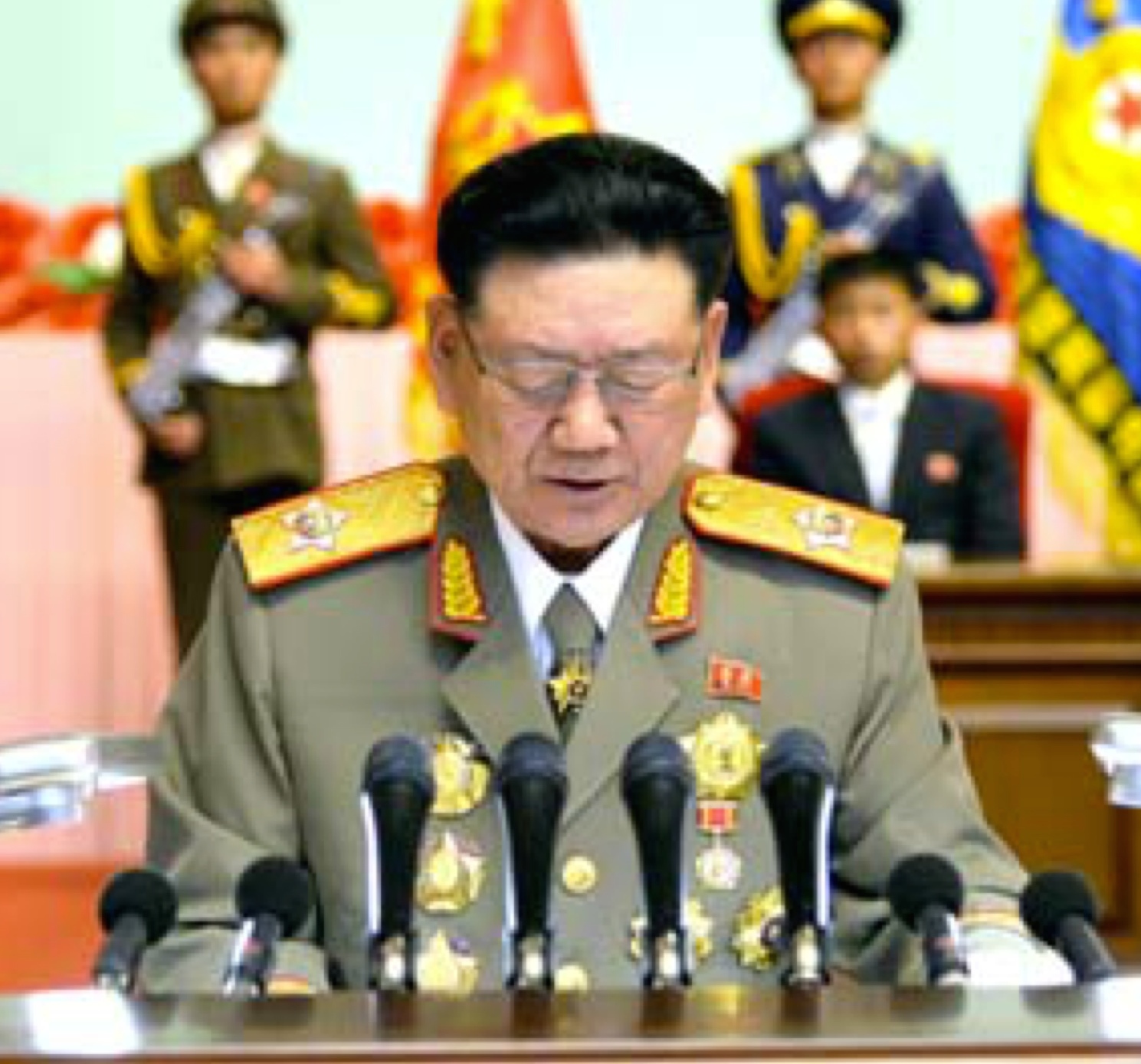Central Report Meeting Marks 24th anniversary of KJI’s Election as NDC Chairman
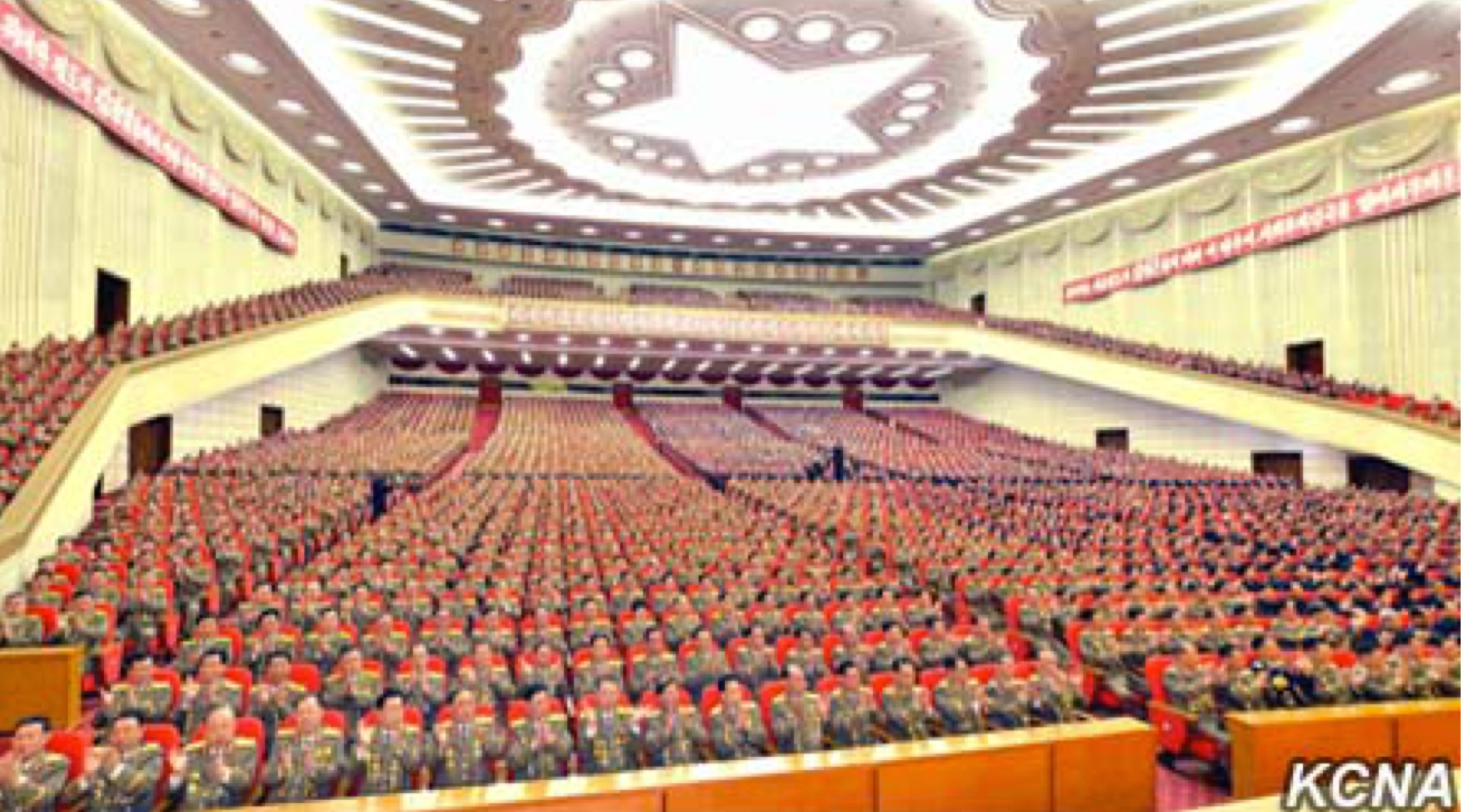
View of participants at an April 8, 2017 central report meeting commemorating the 24th anniversary of Kim Jong Il’s election as chairman of the National Defense Commission (Photo: KCNA)
A central report meeting commemorating the 24th anniversary of late DPRK leader Kim Jong Il’s (Kim Cho’ng-il) election as chairman of the National Defense Commission [NDC] was held at the April 25 House of Culture in Pyongyang on April 8 (Saturday). The central report meeting was attended by senior Workers’ Party of Korea [WPK] cadres, senior DPRK Government officials and senior officials of the Korean People’s Army [KPA] and internal security officials, Cabinet Ministers and Commission Chairs, various cadres and functionaries from national institutions, cadres of the WPK Central Committee and Pyongyang citizens.
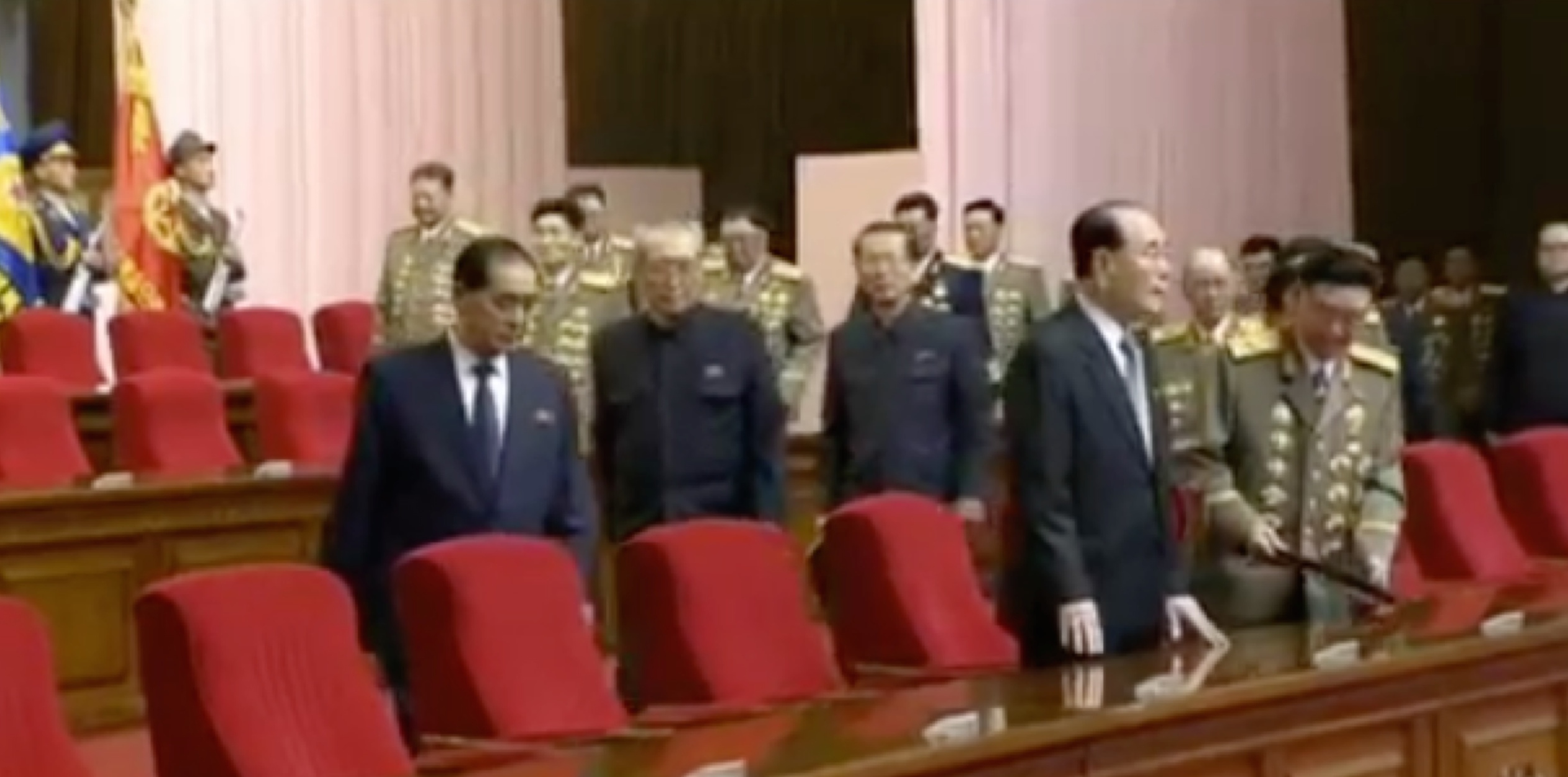
Senior DPRK officials file onto the platform at the April 8, 2017 central report meeting (Photo: Korean Central Television).
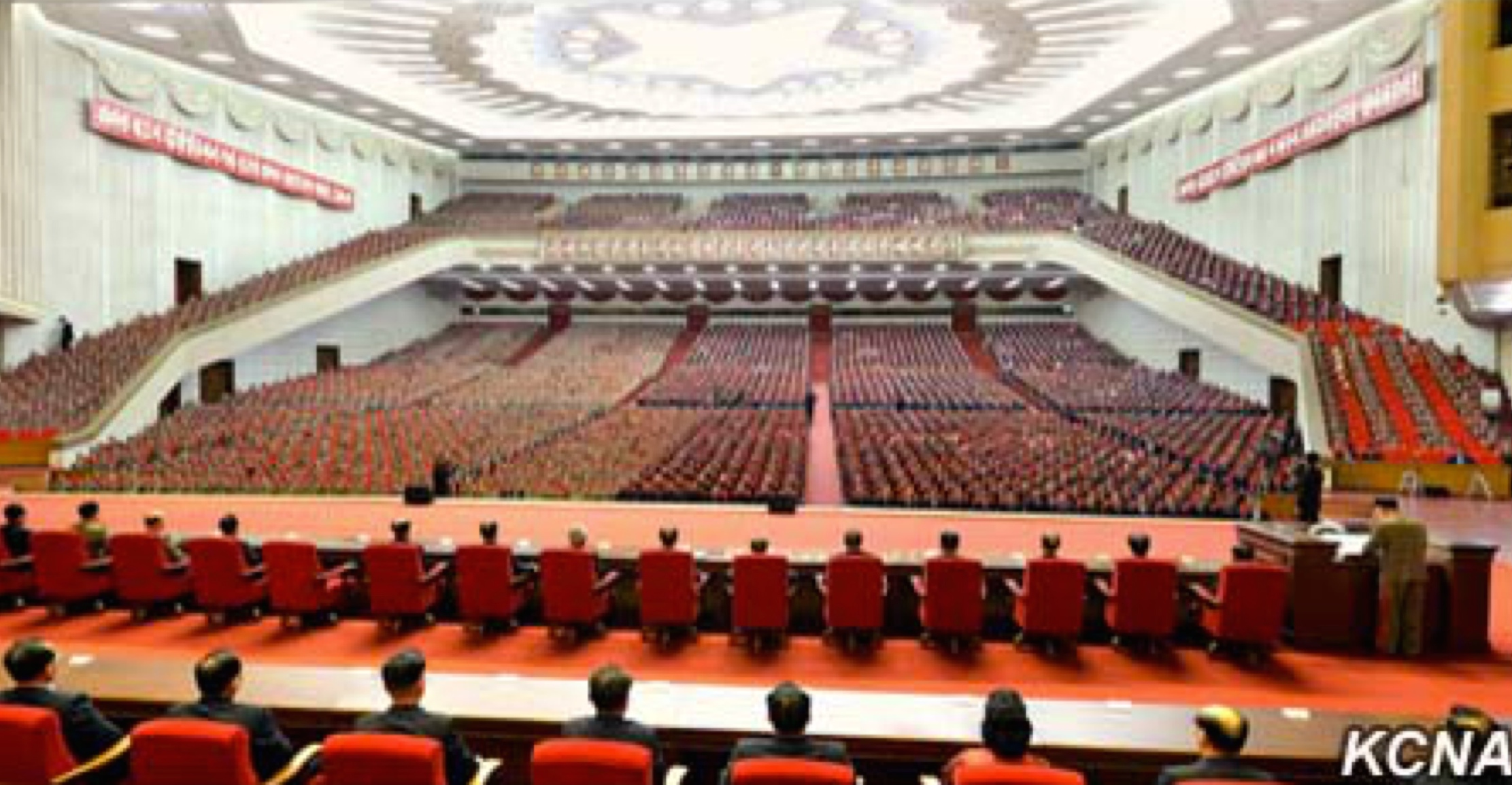
View from the platform of the April 25 House of Culture, venue of the April 8, 2017 central report meeting (Photo: KCNA).
Senior officials attending the event from the platform included: Supreme People’s Assembly [SPA] Presidium President Kim Yong Nam (Kim Yo’ng-nam), State Affairs Commission Vice Chairman and KPA General Political Department Director VMar Hwang Pyong So (Hwang Pyo’ng-so), State Affairs Commission Vice Chairman and DPRK Cabinet Premier Pak Pong Ju (Pak Pong-chu), State Affairs Commission Vice Chairman and WPK Vice Chairman for Workers’ and Social Organizations Choe Ryong Hae (Ch’oe Ryong-hae), Korea Social Democratic Party Central Committee Chairman and SPA Presidium Member Kim Yong Dae (Kim Yo’ng-tae), Chief of the KPA General Staff VMar Ri Myong Su (Ri Myo’ng-su), Minister of the People’s Armed Forces Gen. Pak Yong Sik (Pak Yo’ng-sik), WPK Vice Chairman for Propaganda and Agitation Kim Ki Nam (Kim Ki-nam), WPK Vice Chairman for Science and Education and SPA Chairman (speaker) Choe Thae Bok (Ch’oe T’ae-pok), WPK Vice Chairman for International Affairs Ri Su Yong (Ri Su-yo’ng; a.k.a. Ri Chol), SPA Presidium Vice President Yang Hyong Sop (Yang Hyo’ng-sop), WPK Vice Chairman for Munitions Industries Ri Man Gon (Ri Man-ko’n), Minister of the People’s Security Gen. Choe Pu Il (Ch’oe Pu-il), WPK Vice Chairman for Cadres’ Affairs Kim Phyong Hae (Kim P’yo’ng-hae), WPK Vice Chairman for Planning and Finance Kwak Pom Gi (Kwak Pom-ki), WPK Vice Chairman for Intelligence and South Korean Affairs Kim Yong Chol (Kim Yo’ng-ch’o’l), State Planning Commission Chairman and DPRK Vice Premier Ro Tu Chol (Ro Tu-ch’o’l), Foreign Minister Ri Yong Ho (Ri Yo’ng-ho), Central Public Prosecutors’ Office Director Jang Pyong Gyu (Chang Pyo’ng-kyu), DPRK Central Court President Kang Yun Sok (Kang Yun-sok), WPK Organization Guidance Department Senior Deputy Director Jo Yon Jun (Cho Yo’n-chun), WPK Munitions Department Senior Deputy Director Ri Pyong Chol (Ri Pyo’ng-ch’o’l), Kimilsungist-Kimjongilist Youth League Central Committee Chairman Jon Yong Nam (Cho’n Yo’ng-nam), Union of Agricultural Workers of Korea Central Committee Chairman Kim Chang Yop (Kim Ch’ang-yop), General Federation of the Trade Unions of Korea Central Committee Chairman Ju Yong Gil (Chu Yo’ng-kil), Korean Democratic Women’s Union Central Committee Chairwoman Jang Chun Sil (Chang Ch’un-sil), KPA General Political Department Deputy Director and head of the KPA General Propaganda Department Lt. Gen. Ryom Chol Song (Ryo’m Ch’o’l-so’ng) and KPA General Political Department Deputy Director and head of the KPA General Organization Department Lt. General Jo Nam Jin (Cho Nam-chin).
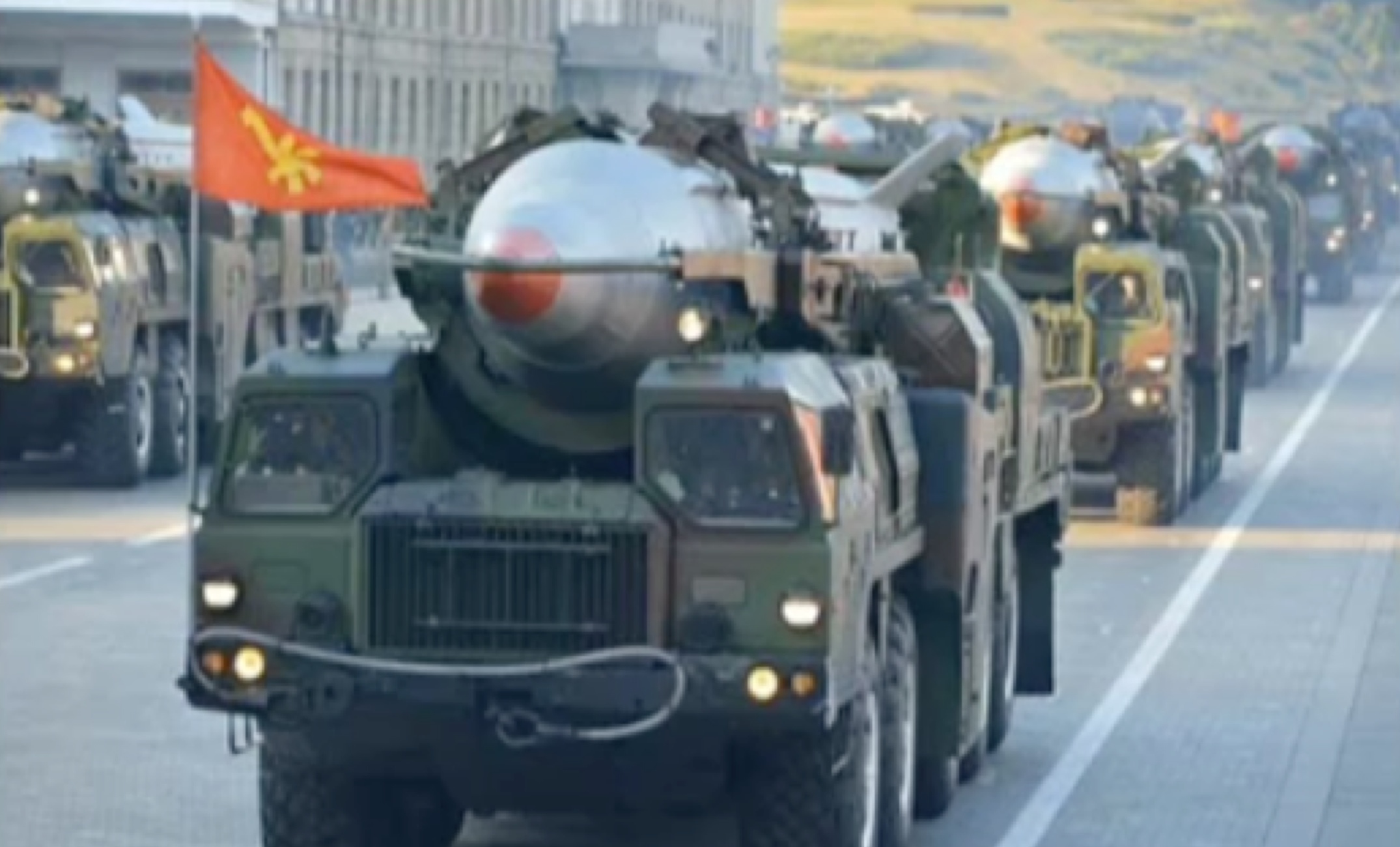
A TEL and ballistic missile from a photo presentation about KJI’s accomplishments which aired during KCTV’s coverage of the central report meeting (Photo: KCNA/KCTV).
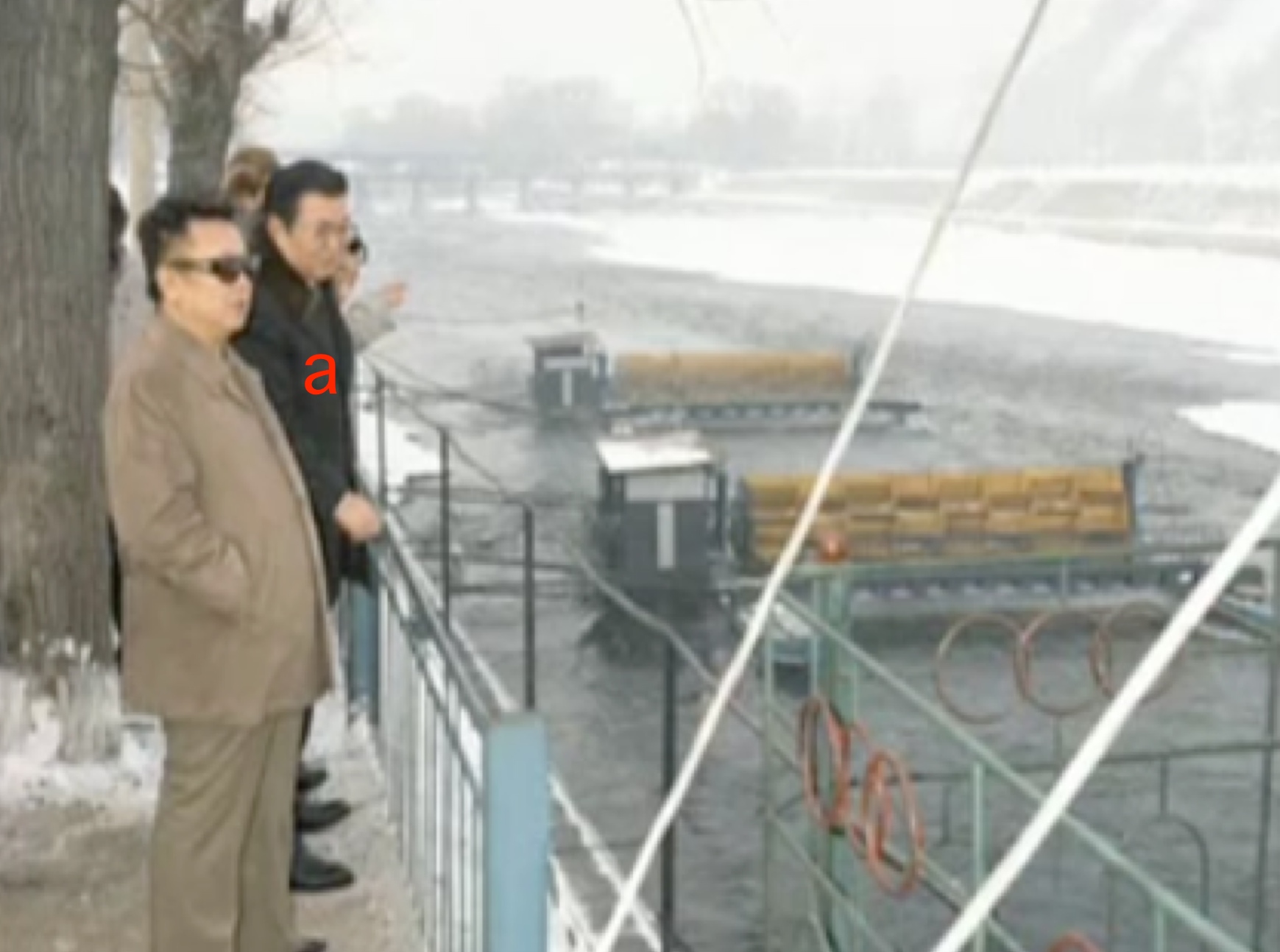
KJI and the late Yon Hyong Muk [a] during an on-site visit in a photo which appeared in a slide show presentation which aired during KCTV’s coverage of the April 8, 2017 central report meeting commemorating the late leader’s election as chairman of the NDC (Photo: KCTV/KCNA).
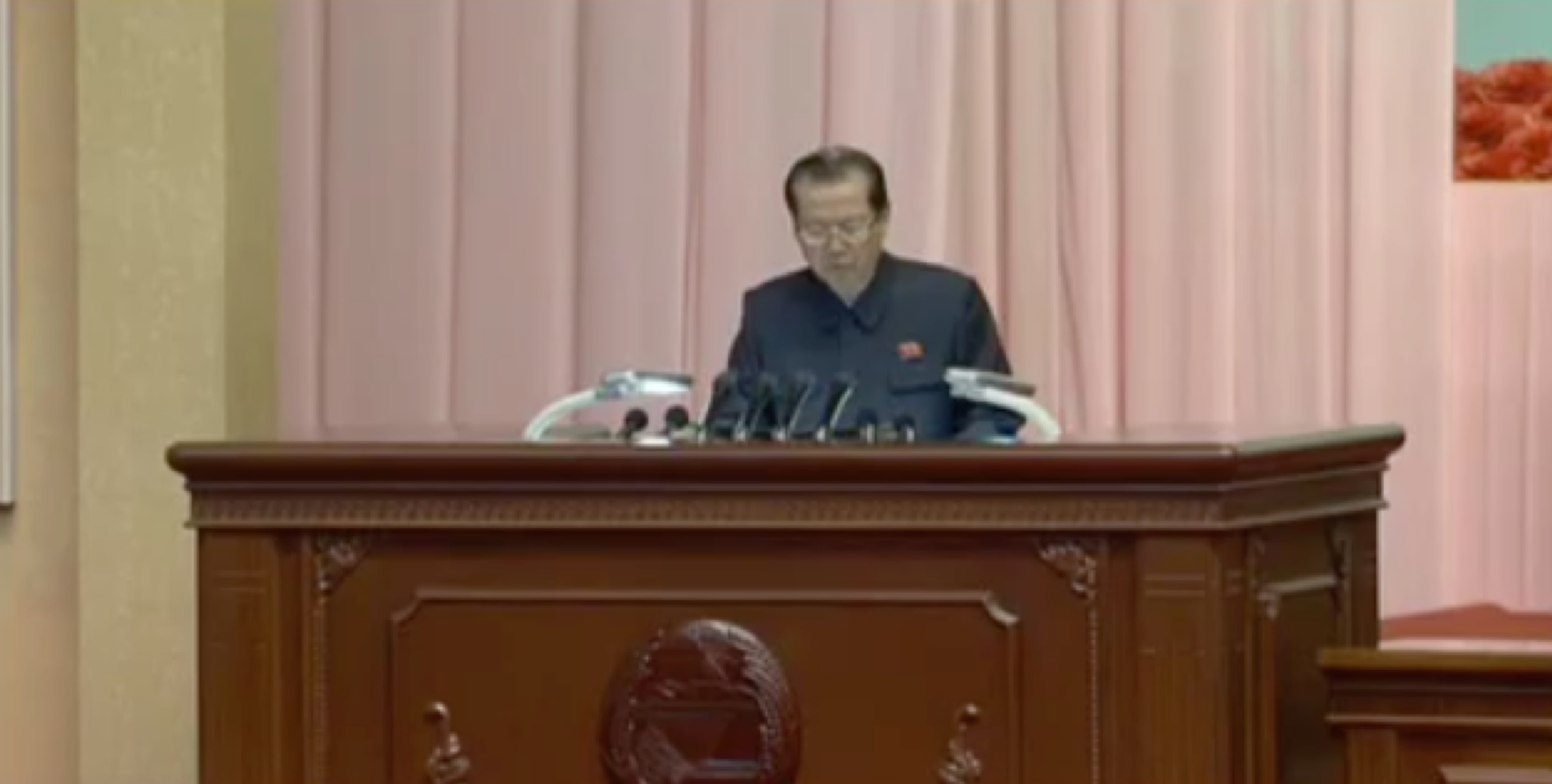
WPK Vice Chairman and SPA Chairman Choe Thae Bok presides over the April 8, 2017 central report meeting (Photo: KCTV).
Choe Thae Bok presided over the meeting. VMar Hwang Pyong So delivered the report.
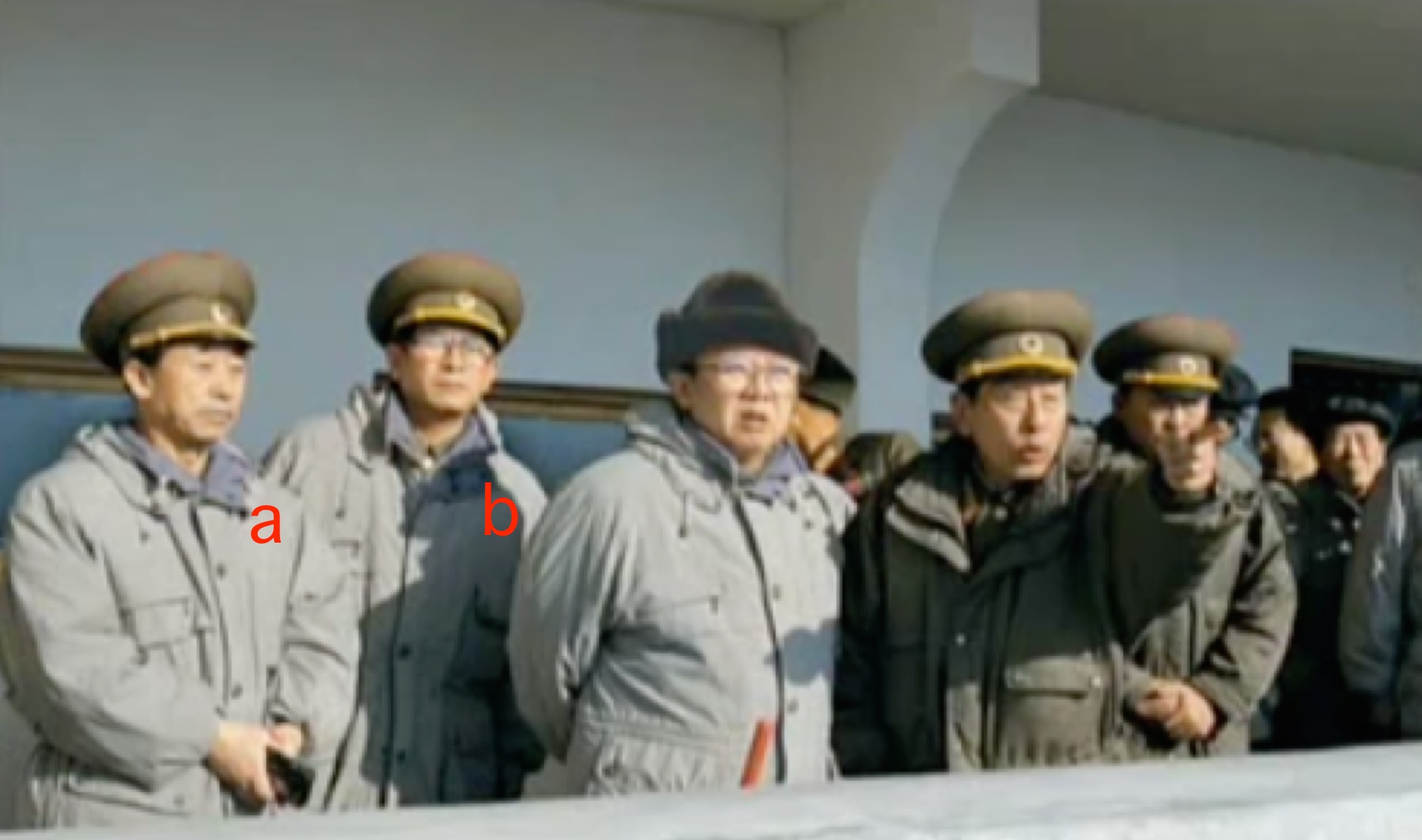
Late DPRK leader Kim Jong Il along with retired senior KPA officials Marshal Hyon Chol Hae [a] and Gen. Pak Jae Gyong [b] at a military inspection in a photo which accompanied KCTV’s coverage of the central report meeting (Photo: KCTV/KCNA).
According to KCNA, VMar Hwang said:
Kim Jong Il’s election as NDC chairman marked a historic event of epochal significance in the struggle for carving out the destiny of the people and achieving the prosperity of the DPRK.
Kim Jong Il brought about a new turn in building a powerful socialist country under the uplifted banner of So’ngun (military-first) in the period of steering overall state affairs, shouldering upon himself the heavy responsibility as NDC chairman.
Under the complicated international political situation, Kim Jong Il firmly adhered to the independent stand and led the DPRK to consistently embody the principle of independence in politics, self-support in the economy and self-reliance in national defense.
He fully equipped the army and people with the revolutionary idea of the party and consolidated the single-minded unity of the leader, the party, the army and the people as firm as a rock, thus building political forces so that the DPRK could maintain a strong independent stand in its activities.
He regarded it as a firm principle to accelerate the building of a powerful socialist country by dint of self-reliance and self-development and made sure that all issues arising in the revolution and construction were solved by our own efforts and with indigenous technology and locally available resources.
He reliably defended the socialist cause with the original So’ngun (military-first) politics and turned the DPRK into an invincible military power and nuclear weapons state which no formidable enemy dare attack.
He glorified the DPRK as a socialist state centered on the popular masses, the state governed by the Chuch’e-oriented viewpoint on the people and people’s philosophy.
Under his leadership, there came the June 15 era of reunification in which the Koreans were making a dynamic advance, guided by the idea of “By Our Nation Itself” and the DPRK’s international prestige and influence rapidly rose.
His ardent and patriotic desire for a powerful country is being translated into reality under the guidance of respected Supreme Leader Kim Jong Un (Kim Cho’ng-u’n).
The present era going by the august name of Kim Jong Un will be glorified as the era of great succession in which Kim Jong Il’s patriotic desire for a powerful country is coming true in all aspects and the great era of prosperity in which the DPRK steadily prospers and its people’s dream and ideal are coming true.
